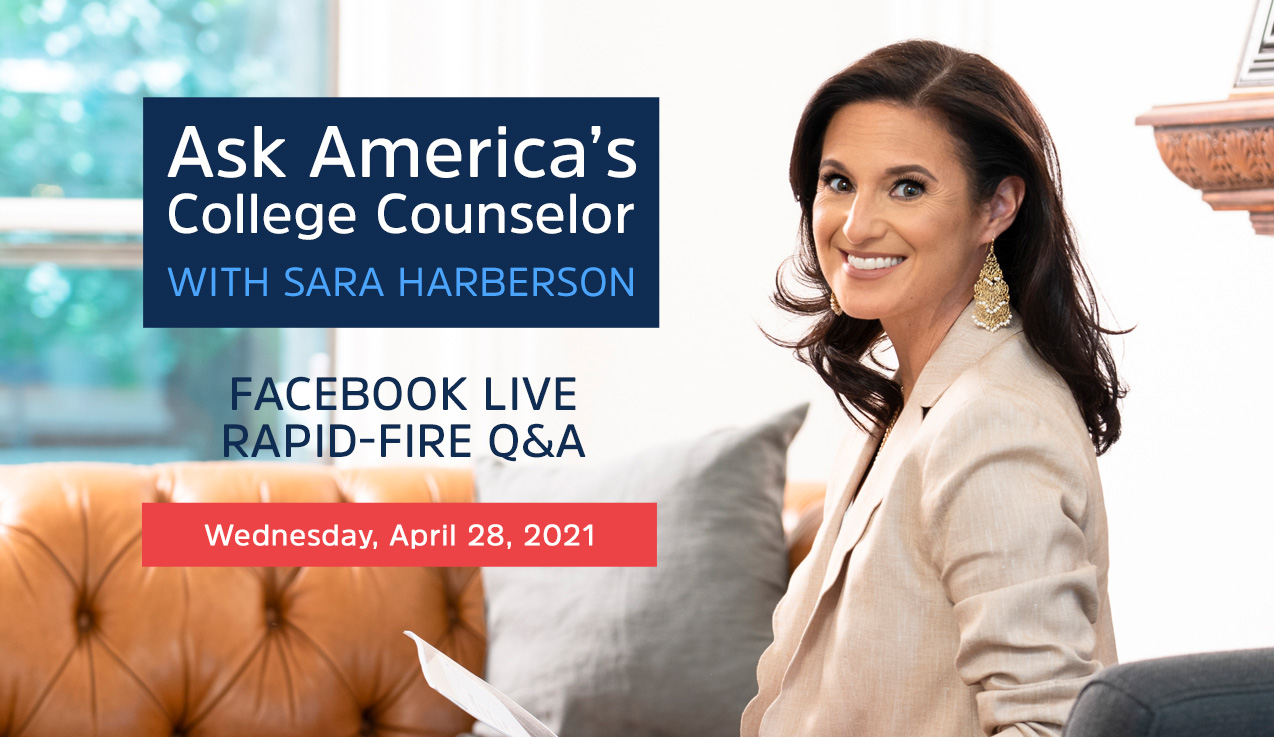Dear Admissions Dean,
You faced a challenging year navigating shifting enrollments and implementing admissions strategies to keep some semblance of normalcy on your campus during the pandemic. You probably need a break from campus life and those lofty Ivory Towers you hope are as attractive to students as they once were.
Let's take a trip around the country and get to know how your next group of students, the Class of 2022, is faring. It is always important to keep the students and the times we are living in at the forefront of policymaking, right? Right.
All aboard...
First stop: A high school in Middle America.
Shhh. The AP U.S. History exam is being administered today. These students need all the focus they can get. Students are facing insurmountable challenges taking these AP exams. They are reporting to me on a regular basis that their AP classes did not get through all of the material before the AP exam. Because of fluctuating school schedules their teachers had to cram months of content into the remaining days leading up to the exams. As a result, students had to teach themselves in order to be better prepared.
While AP scores are typically not required for admission, we both know that if a student submits a score, good or bad, it is fair game to be considered in the admissions process. You often use slightly lower AP scores as a reason not to admit a student. Yes, you do. So now that the world knows, just stop doing it.
Second stop: A high school in the Northeast.
Remember, six feet apart while you are in the building! What was that? Did you say something? I couldn't hear you. I couldn't connect with you. That sounds like the many high school juniors and their teachers this year. Usually junior year teachers are the best at writing letters of recommendation. But this year, students feel like they didn't get enough interaction with them in order to ask for a letter of recommendation. So why are you, Harvard, Tufts, the University of Pennsylvania and many other colleges, insisting that students ask only junior or possibly senior year teachers for these letters?
If the students haven't connected with a junior year teacher, they will need to ask a senior year teacher to write them a letter of recommendation only a few weeks into the school year in order to apply Early Decision, Early Action, or both. I urge you to have some flexibility this year. Make announcements on your websites about the fact that sophomore year teachers are perfectly suitable to write letters of recommendation for the Class of 2022. It's the right thing to do.
Third stop: An airport somewhere on the West Coast.
Do you see all those students getting ready to fly? Guess where they are headed? To take an SAT or ACT out of their area. Why? Because certain regions of the country are more open and more likely to offer a standardized test. You are creating an even bigger socioeconomic divide between those who can afford to take a trip like this and those who can't. Before families feel like we are back to a pre-admissions scandal world where money and privilege matter more than anything else, please announce your standardized testing policies now. Even if you do not plan to extend your test optional policy this year, letting students know what to expect can save them a lot of uncertainty.
Fourth stop: Neighborhoods in the South.
Look at those thick brochures the postal worker is trying to shove into the family mailbox. You and I know what that's all about. You aren't sending that very thick, glossy, and suggestive brochure to the student because you plan to accept them. You are simply trying to get them to apply. Didn't you get enough applications this year? Do you really need to target students like this when your acceptance rate is nearing 0%? Think about your marketing strategies on your flight home. Maybe you are part of the problem.
Fifth stop: Back home to that Ivory Tower.
The tower is tall, intimidating, and elusive. Come down from that tower on a regular basis. Engage with real students living real lives. Listen to what keeps them up at night. Be a voice for change in college admissions. Put students first in your policymaking efforts. If not, you will lose touch with what college admissions is all about: acceptance, opportunity, and accessibility.
Leaving your environment and exploring the world around you is what we encourage our children to do when it comes to college. It broadens their minds and makes them more empathetic and self-aware individuals. Yet adults, especially ones that hold so much power over our youth, should also take time to step away and get in touch with these students. It is the only way they will know if their policies and strategies are helping or hurting our youth.
I was once an admissions dean just like you. I found the job to be more catering to institutional priorities instead of what is right for students. Now I surround myself with those students so that I can listen, guide, and fight for them. If you need any real-life examples of students, just let me know. If you listen to them, they will change the way you do your job forever.
Sincerely,
Sara Harberson
Former Admissions Dean and Current Student Advocate











.jpg)
